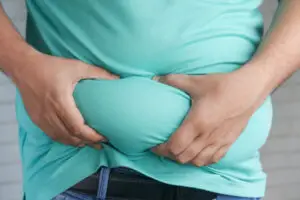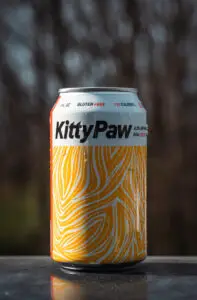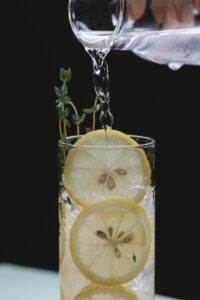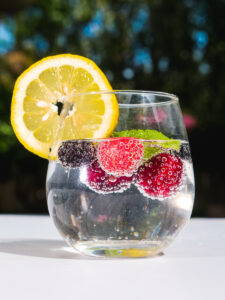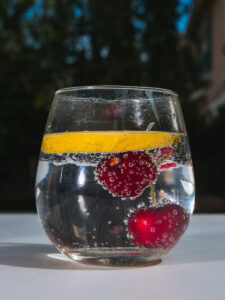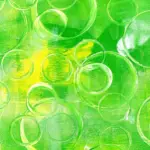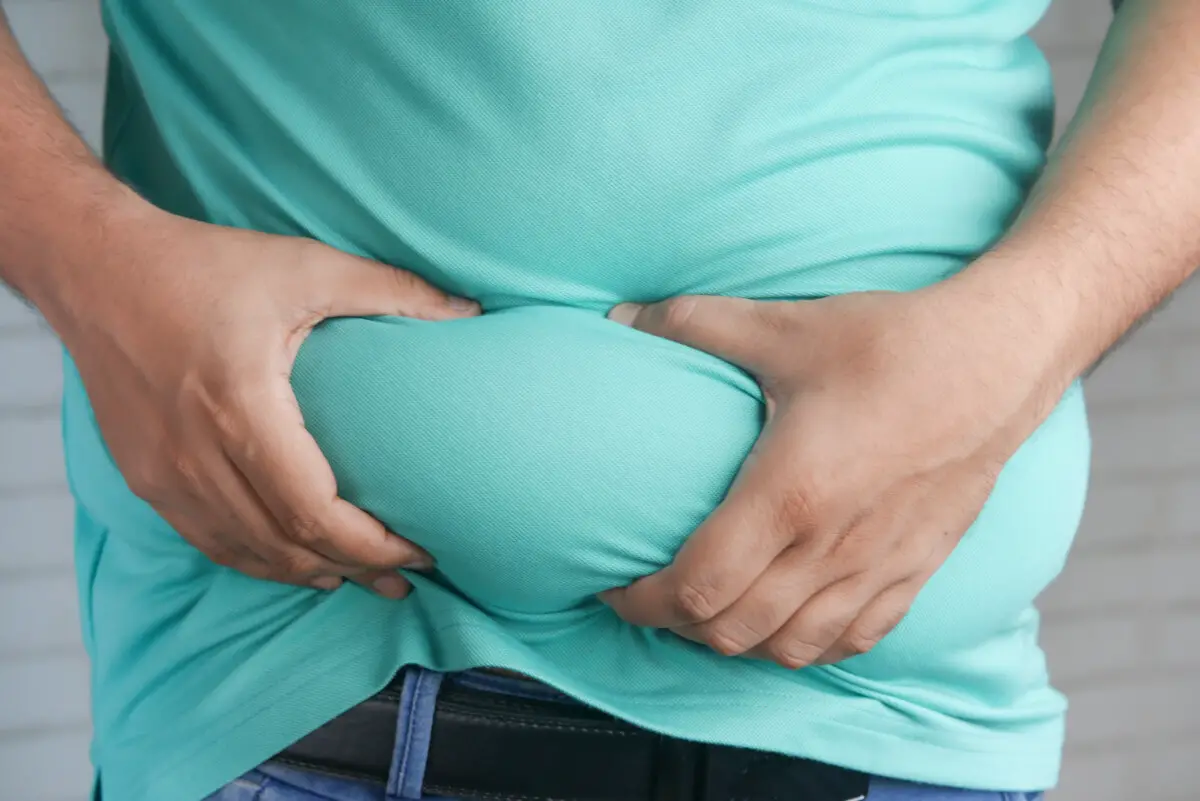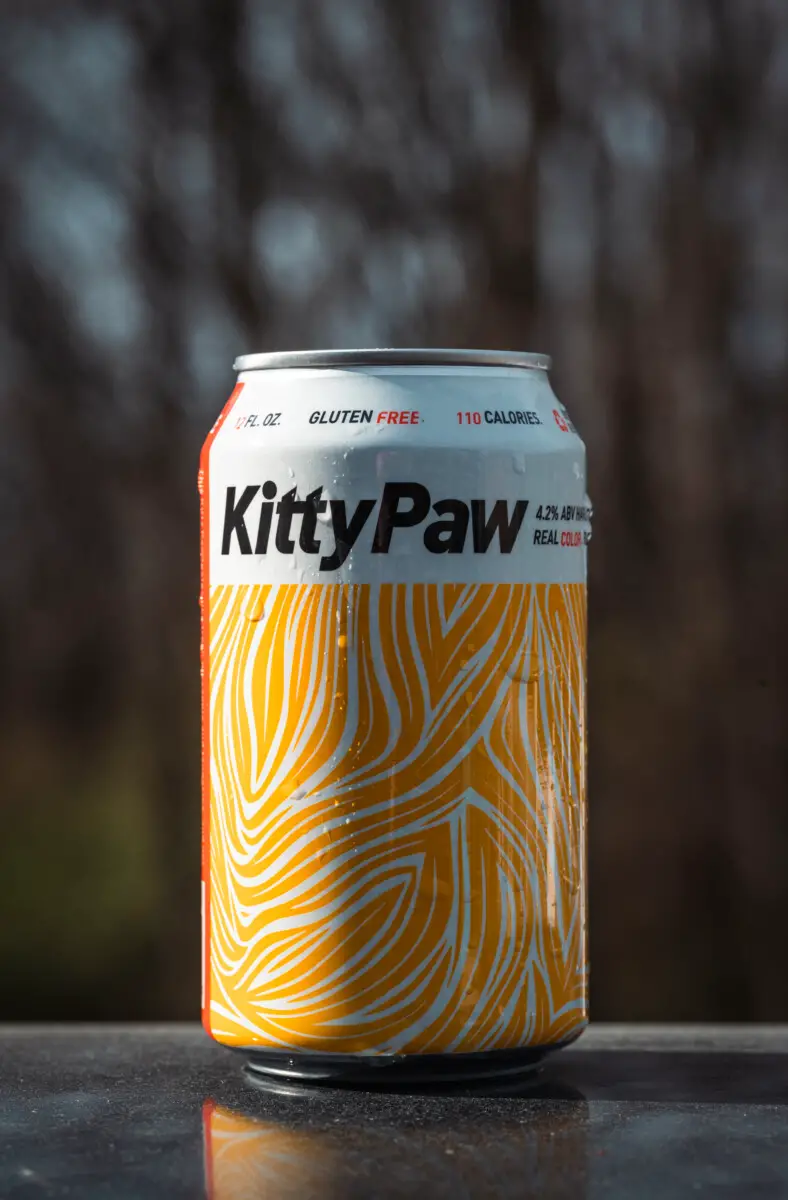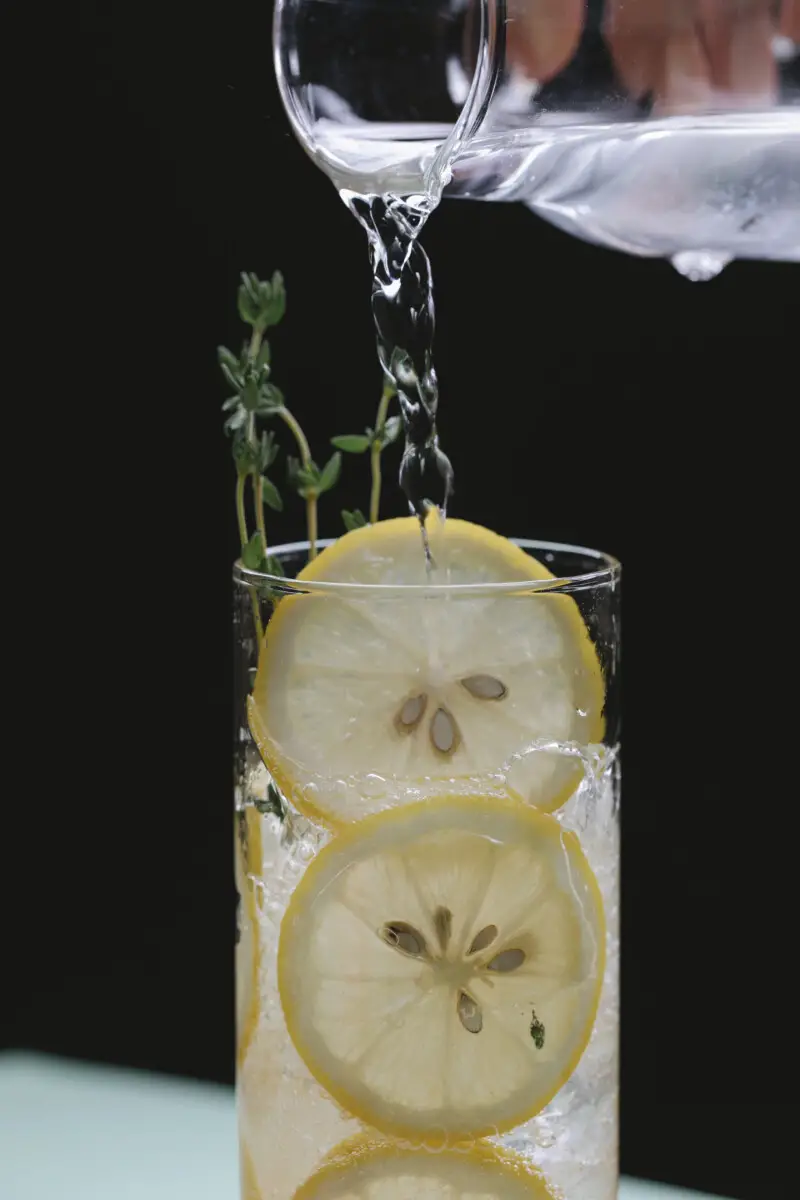Amazon Affiliate Disclaimer
As an affiliate, we earn from qualifying purchases. We get commissions for purchases made through links in this post.
Is Sparkling Water Bad For Teeth?
Have you ever wondered if the refreshing bubbles of your go-to sparkling water contributed to tooth decay? Some studies have questioned whether drinking carbonated beverages, including sparkling water, is good for your teeth because of the increased acidity. If so, how does it affect your teeth; and is it true that drinking sparkling water is bad for your teeth?
Isn’t Sparkling Water Preferable To Sugary Soft Drinks?
It is common knowledge that products with a lower pH value are more acidic than those with a higher pH value. The pH of still-neutral water is 7, while plain sparkling water is typically between 5 and 6. While orange juice has a pH of about 3.3, cola drinks hover around 2.5.
This indicates sparkling water is slightly more acidic than still water but much less than other beverages such as coffee, soda, or fruit juice. However, the effects of sugary beverages on tooth enamel are greater, regardless of whether the beverage is still or carbonated, so it’s not just the carbonation that matters. The high sugar content and carbonation in soda pop make it acidic, which is bad for teeth.
So, Is Sparkling Water Harmful To Your Teeth?
Carbonated drinks are made by dissolving carbon dioxide into the water at high pressure and low temperatures. Creating carbonic acid as a byproduct of this process makes most sparkling water more acidic than regular tap water.
In a nutshell, sparkling water may cause tooth enamel to deteriorate. This is because of a natural chemical reaction that occurs during the carbonation process and causes this byproduct. Additionally, if the pH of a drink is sufficiently low (acidic), it can harm your teeth.
Catriona Brown of the University of Birmingham led a study published in the International Journal of Paediatric Dentistry that found many flavored sparkling glasses of water to be just as corrosive to teeth as normal orange juice.
The citric acid added to the water by the lemon, lime, and grapefruit flavors made them the most erosive in the Birmingham tests. Extra flavors, if any, appear to be the riskiest. However, a separate study published in the Journal of Oral Rehabilitation found that most flavorless sparkling water and plain mineral water are not particularly damaging to teeth.
The sum of the scientific evidence suggests that sparkling water may affect your teeth, but even in the worst-case scenario, the damage will be comparable to that of sugar-free fruit juice.
The duration of time that teeth were submerged in carbonated water in most studies was also excessive. There is a small chance of tooth erosion from drinking carbonated water, but only if you drink a lot of it and let it sit in your mouth for a long time.
Ways To Preserve Your Teeth While Enjoying Sparkling Water
Sparkling water has the opposite effect on teeth as sugary drinks. However, You should drink a lot of plain, fluoridated water because it is the healthiest thing you can put into your body. Fluoride-treated water helps fight cavities, prevents dry mouth, and removes the sugary residue that feeds the bacteria that cause tooth decay.
Pay close attention to the carbonated beverage ingredients. Too much consumption of citrus-flavored waters can cause enamel wear due to their higher acid levels. You should ingest them all at once or with food. That way, you won’t have to worry about your teeth gradually dissolving from the slightly higher acidity that would result from drinking it all day long.
Brands of sparkling water that include sugar are no longer merely sparkling water. Because of the high sugar content, they may increase the likelihood of tooth decay. Plain water is always preferable, whether it’s carbonated or not.
After drinking sparkling water, you may want to rinse your mouth with still, unsweetened water to dilute the mild acids and wash them from your teeth. This makes sparkling water a safer and healthier choice for drinking.
Even though drinking sparkling water once in a while probably won’t cause any harm to your teeth, you should still consider other prevention methods. Sparkling water is commonly flavored with citrus fruits like lemon and orange slices.
Although these fruits are healthy, the acid in their juices can erode tooth enamel if left in the mouth for too long. Adding fruit juice to sparkling water will increase the effect, but probably not as much as drinking pure fruit juice. Instead of selecting fruit-flavored sparkling water or a mixture of sparkling water and fruit juice, try sticking with plain sparkling water.
If you like to sip water throughout the day to stay hydrated, plain, still, unflavored water is the best choice. If the tap water in your area contains fluoride and other minerals like calcium, then drinking still water is the best thing you can do for your teeth.
Don’t forget to check the ingredients list before drinking sparkling water from a bottle. Assuming you maintain a high standard of oral hygiene, the risk of harm is low if the only ingredient is carbonated water. When the water has citric acid, sugar, or flavorings in its ingredients, it can erode your teeth.
FAQ
Conclusion
Compared to other beverages, sparkling water has a much lower tooth erosion rate. In other words, it’s not as harmful to your health as most soft drinks. According to the U.S. News & World Report article, “for an average, healthy person, sugar-free, carbonated beverages are not a main cavity-causing factor.”
However, there is no guarantee that it will benefit your health. Substituting soda with sparkling water is great, but you should consider drinking fluoridated water instead. Also, if you frequently take sparkling water, then going in for regular checkups with your dentist can help catch cavities at their earliest reversible stages.
Depending on your lifestyle and current dental health, your dentist should be able to give you personalized advice. You should maintain regular dental checkups at all times. This way, you can compare your oral health from year to year.
Read also:
- Embracing the Essence: Discovering Natural Mineral Water Sources

- Nourishing the Soul: Mineral Water for Enhanced Digestive Wellness

- Sparkling Mineral Water: Effervescence for the Soul
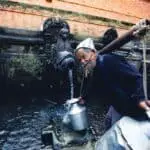
- Revitalize Your Day: 7 Tips for a Refreshing Hydration Experience with Mineral Water

- Mineral Water Benefits: Exploring the Health Benefits of Drinking Mineral Water

- How to Choose the Healthy Drinks with Mineral Water: Refreshing and Nourishing Options

Please be careful and use at your own risk
None of the authors, contributors, administrators, or anyone else connected with Water Exotic, in any way whatsoever, can be responsible for your use of the information contained in or linked from these web pages.


